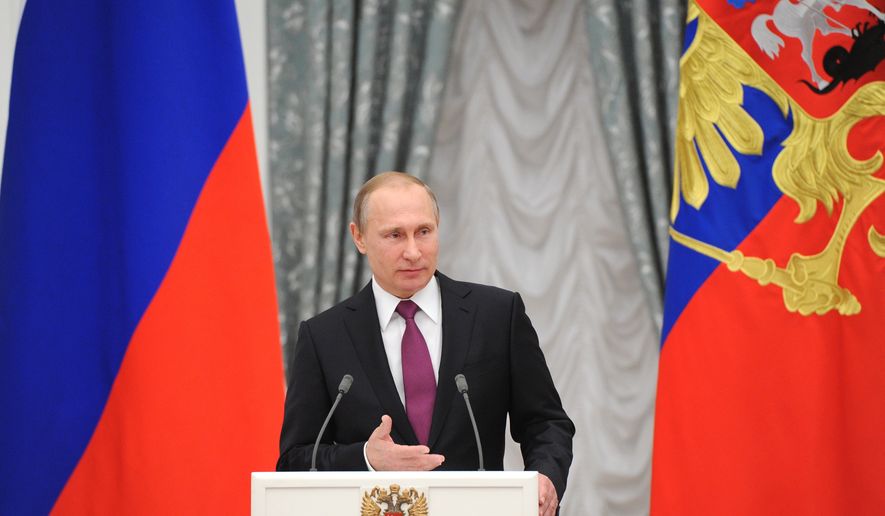Russia is not pulling its military forces out of Syria as announced by President Vladimir Putin with much fanfare last month.
To the contrary, Russia has brought in advanced attack helicopters and its jet fighters continue to help its client, Syrian President Bashar Assad, take back territory from anti-government rebels and the Islamic State terror army.
“There’s been a slight reduction in numbers but they still retain significant capability in Syria,” said Army Col. Steven Warren, spokesman for U.S. military operations in Iraq and Syria.
On March 14, Mr. Putin announced his military, which operates an air base in western Syria, was leaving.
“I think that the task that was assigned to the Ministry of Defense and the armed forces as a whole has achieved its goal, and so I order the defense minister to start tomorrowwithdrawing the main part of our military factions from the Syrian Arab Republic,” Mr. Putin said.
Asked on Friday if the Russians were exiting, Col. Warren answered, “No.”
Russian air power last month helped Assad’s army and Iranian troops take back the city of Palmyra, north of Damascus, from the Islamic State, also known was ISIL and ISIS.
On Tuesday, Peter Cook, spokesman for Defense Secretary Ashton Carter, said it was a “good thing” that Russian planes were hitting ISIL, a common enemy of the U.S.
“I think it’s being clear that they have focused more of their military attention on ISIL,” he said of Russian strikes “We think that is a good thing. We encouraged that from the start. They said initially that their primary goal was to go after ISIL in Syria, and they’re doing so now.”
“At the same time, we have said for some time that the Assad regime is the primary reason for the Syrian civil war, and we think that the Assad regime’s focus should be right now on trying to end that civil war and by engaging in the diplomatic process that’s currently under way,” he said.
On Friday, Col. Warren did not praise Russia, saying the people of Palmyra were no better off under the brutal Assad.
“Any time ISIL is hurt we consider that a good thing,” he said.
He added, “But it’s a tricky situation, right. What do you see in Palmyra. You see the Russian regime has pushed out ISIL. In our view, at least for the people of Palmyra, that’s certainly a movement from the frying pan into the fire. Assad is a brutal ruthless dictator who’s gassed his own people with chemical weapons. He’s the problem. He’s responsible for this bloody civil war that’s taken more than a quarter of a million Syrian lives in the estimation of many humanitarian organizations. And so, the situation for the people of Palmyra is probably not going to improve that much. They went from being under the boot heel of ISIS to being under the boot heel of Bashar al-Assad. I’m not sure that’s much of an improvement for those poor people in Palmyra.”
Asked if he believes Russia and Syria will now move east toward the ISIL center of Raqqa, on a timetable ahead of U.S.-backed fighters, Col. Warren said, “No one is going to get to Raqqa any time soon.”
• Rowan Scarborough can be reached at rscarborough@washingtontimes.com.




Please read our comment policy before commenting.